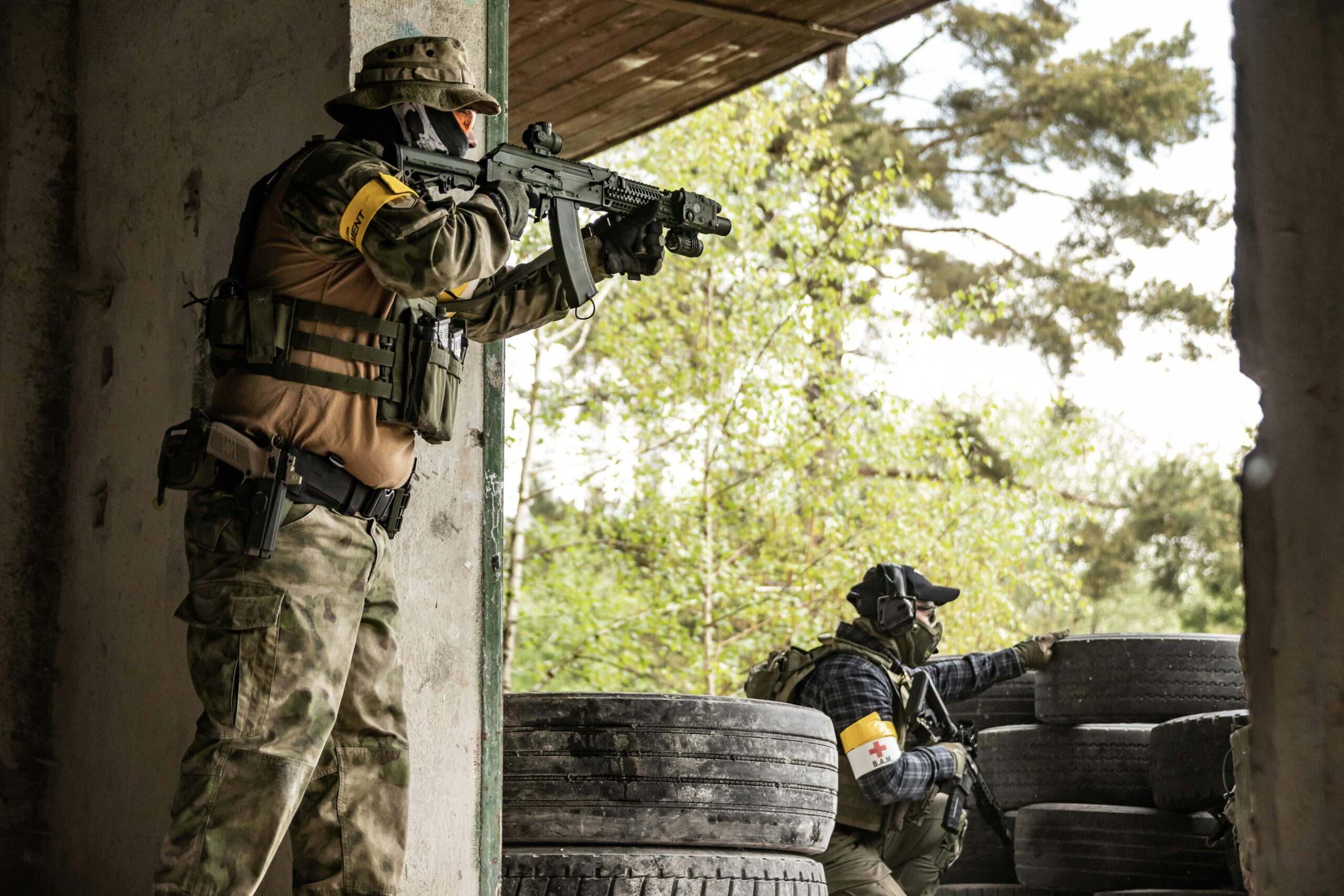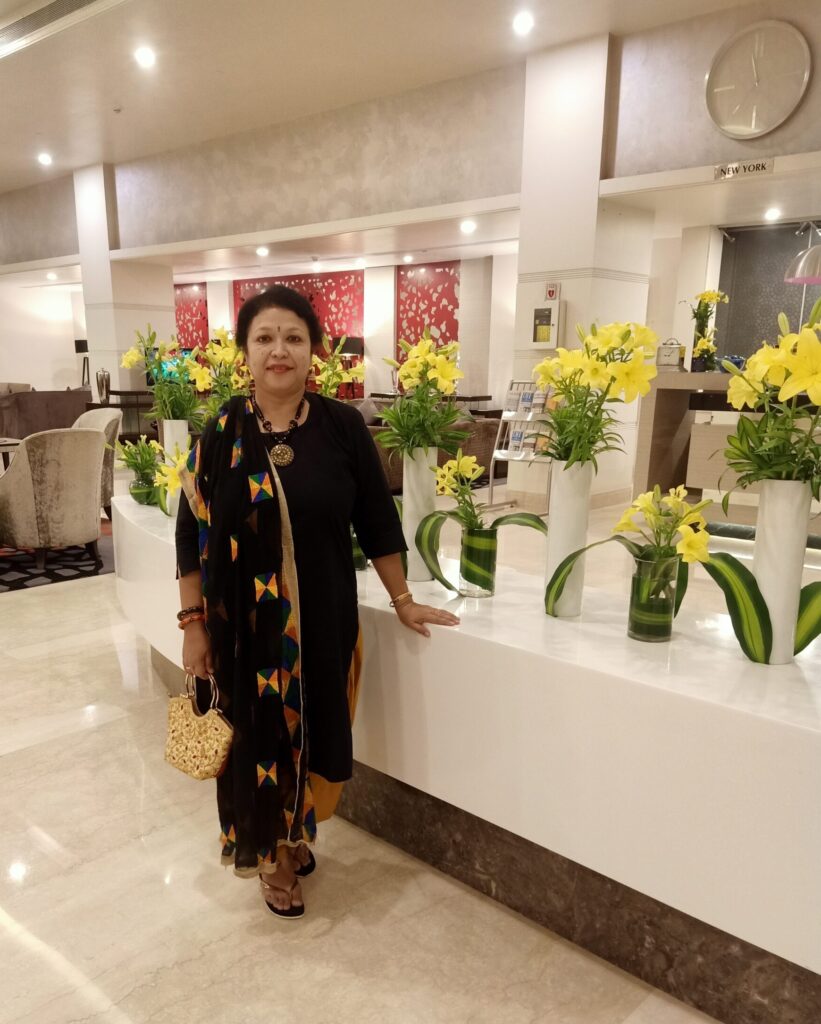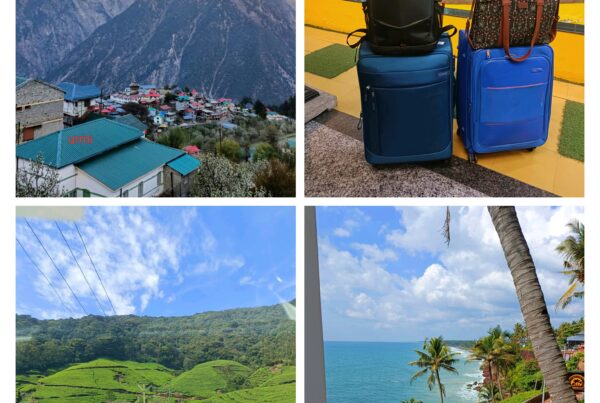This personal essay was first published on Kitaab International on 26 July, 2024 – the 25th year of the Kargil War.
Late-night phone calls, unannounced visits, sudden movements – features that distinguish a soldier’s life from that of others. All in a day’s work, as officers of the defence forces and their spouses will augur. But when the conversations are held in hushed tones when the visits happen in the dead of the night, and the man of the house packs and leaves at dawn without divulging any details of his official tour, as a fauji wife you realise something has changed. Like I did, twenty-five years ago, on a sultry May morning.
Back then, my husband – an engineering officer serving the Indian Air Force – had completed two years of his tenure at an air base in Haryana. Dating back to World War I, this Air Force station, with its premier fighter squadrons and hallowed history, enjoyed immense strategic significance (and the legacy continues). While the call of the uniform demanded single-minded focus throughout the day and very often, the evenings, our weekends were a never-ending saga of partying and celebration, aka fauji bromance!
The movement of men and machines was a sight I was well acquainted with, having spent eight years within the Air Force fraternity. But that particular morning, the deafening roar of the entire fleet of fighters and transport aircrafts tearing through the skies and disappearing from sight, leaving behind a wisp of vapour trail, somehow appeared portentous. I got in touch with the other ladywives of the squadron. We all knew that some service exigency had occurred which required our men to report to the forward operational base. But honouring protocol, the officers had not shared the details with their families.
This was in May 1999. Our only sources of information used to be the newspaper and the television. We had been reading about incursions by the army of a neighbouring country in Kashmir and the escalation of security in our own. But it was only after our squadron was deployed to the Punjab-Pakistan border, did the urgency of the situation fully sink in. By this time, news had started trickling in from other quarters, too. Our cantonment had a large Army presence. A few of their units, too, had either been moved to the border or put on high alert at their home base.
In a matter of a week, our lives changed completely. While earlier, war always seemed to be something that happened in other countries, it now came knocking on our doors. In fact, it had invaded our living rooms, what with the television channels regularly airing bytes about the mounting disturbances in the Drass-Kargil sector, the bureaucratic dialogue held in New Delhi, and reports on India’s defence preparedness to stymie any further intrusion. The Kargil War was now a reality, and as soldiers and their families, we needed to rise to the occasion.
During any military crisis, it is the official and residential premises of the Forces that become vulnerable to enemy attack, especially in sensitive bases like ours. Overnight, the security cover at all public places was amped up. Marketplaces, schools, banks, the Military Hospital, temples, and gurudwaras were fortified. Open-top Army jeeps carrying fully armed commandos regularly patrolled the streets, largely to instill a sense of security and reassurance among the residents. Our cantonment was practically peopled by women and children, with most of the Army and Air Force personnel sent to various strategic locations. I had once visited my son’s kindergarten to pay the fees and was startled to see a few gun-wielding men, their heads and faces covered with black scarves, keeping watch all along the boundary wall. I heaved a sigh of relief, knowing my tiny tot was safe inside those classrooms.
This was also a time when I had to be extra careful about my health, pregnant as I was with my second child. This was probably another reason why my husband appeared very unruffled when he left – the idea was to spare me any additional anxiety, I realised later. My baby bump was already showing. Regular check-ups and blood tests had to be done; a strict health regimen needed to be followed. I would send my son to school and utilise those few hours to complete my weekly shopping and other outdoor requirements, including my medicals. Travelling on the bumpy roads in a rickshaw (I did have my driving license but was not too confident or adept behind the wheels) in the sweltering Haryana heat, I would send out a silent prayer for the well-being of my unborn child.
Back in my home town, my parents were extremely concerned, both with the Kargil developments and my health status. Those were the days when STD calls had to be made from those tiny red booths that looked more like a cage and had rotary telephones that functioned as per their own whims and fancies. Our neighbourhood PCO used to be choc-a-bloc at night with defence ladies, eager to speak to their loved ones back home. Once every week, I would troop out at night (call rates were slashed post-10 pm) with a trusted rickshaw puller to make a call to my parents. I could not disclose my husband’s location to them and forced myself to sound perfectly at ease. Despite their many requests for me to shift to Calcutta temporarily on health grounds, I was firm on continuing at our base. The only point of contact I had with my husband was that occasional trunk call I received at a senior officer’s house next door which, again, was strictly monitored by the military telephone exchange. We simply exchanged casual updates. But that was enough to salve my frayed nerves and keep me happy for the next few days. Moving to Calcutta would mean forgoing this much-awaited communication – a deal I wasn’t willing to broker.
Meanwhile, the conflict at Kargil was peaking. And so was my inner turmoil. News of our soldiers being martyred along with heartrending visuals of coffins wrapped in the tricolour, further dipped our sagging morales. A huge alleviating factor at this point was the support of our unit ladies. At that critical hour, all of us stayed close and connected, drawing strength and solace from each other. Strangely, none of us had left the base. In the absence of our kin, we formed one close-knit, extended family battling a common crisis. We would meet up very frequently, kids in tow. I loved how my quiet bungalow reverberated with mirthful voices whenever I hosted my friends. We had no inhibitions in voicing our apprehensions or shedding a few tears. The undiluted camaraderie and sisterhood we shared, invariably flushed them out and we returned home, suffused with quiet courage and renewed patience.
And thus, the days rolled on with their usual medley of bright and dull days. Once, we woke up to the shocking news of two militants being neutralised in the marketplace where they were operating a PCO booth as an alibi. However, there is one more incident that remains indelible in my mind to this day. One night, around 2 am, my sleep was interrupted. In the dim light of the night bulb, my eyes fell on the shadow of the mosquito net on the wall – it was swaying dangerously! I, too, seemed to be caught in some mild motion. It took me a couple of seconds to realise that we had been hit by an earthquake. My first impulse was to shield my sleeping son with a few pillows and spread myself out on top of them, in case the roof caved in. Once the tremors subsided, we all came out of our homes – shaken, but relieved that there were no losses. The power supply was disrupted for about twelve hours thereafter. The earthquake lasted barely 14-15 seconds but those seemed to be the most interminable and harrowing moments of my life!
During this phase, certain days seemed particularly long and burdensome. Thanks to a mishmash of disturbing military developments and my own delicate hormones acting up, I felt unduly weighed down…frustrated…unnerved. However, I did understand that a mother’s stress and anxiety could well pass on to the foetus, not to mention my firstborn who had a knack for reading my mind like a pro. For the sake of my children, I would cheer myself up and stay positive. A long, unhurried evening walk, or a quick trip to the nearby park with sonny boy, proved to be a panacea at such times.
Two and a half months later, we spotted a frail glimmer of hope at the end of a long, dark tunnel. Our soldiers finally reclaimed the territories captured by the enemy. But as was expected, victory came at a steep price. Our hearts bled for all those brave hearts who made the supreme sacrifice and for their bereaved families. Unknown names, unfamiliar faces, but fellow travellers traversing a common path of valour and peril.
Our unit officers returned in late July – it was an overwhelming moment and an emotional reunion. By god’s grace, my pregnancy had progressed well. By the end of the year, we got transferred to an elite and peaceful base in South India, where I birthed a healthy baby boy. Occasionally, my husband shared snippets of how their days and nights unfolded during the Kargil deployment – facts that made me count my blessings, even though they were positioned some distance away from the actual war zone. But that’s a story for another day.
Today, as I turn the clock back to the summer of 1999, I feel my heart brimming with pride and gratitude. Pride, for having been a small but significant part of the historic Kargil conflict. And gratitude, for having survived it unscathed, on every count. As a person, this experience bolstered my confidence and upped my resilience quotient. Carpe diem became my new mantra in life. Seize the moment and make the most of it – what if tomorrow never comes?!
P.C. Daniel on Unsplash









